Request a Catalog
Marine Corps Terms, Slang, and other Sayings
Marine Corps Terms
author unknown
“A few good men”
Cap’t Wm. Jones was quoted in the Province Gazette on March 20, 1779. “The Continental ship Providence, lay-up at Boston, is bound on a short cruise, immediately, a few good men are wanted to make up her compliment.
“Retreat Hell”
Capt. Lloyd Williams, during WWI at Belleu Wood said this as French officers encouraged their retreat in June 1918. Others took credit for it also.
“First to Fight”
Marines have been in the forefront of every American war since the founding of the Corps. They have carried out over 300 landings on foreign shores. They have served everywhere, from the poles to the tropics. Their record of readiness reflects pride, responsibility and challenge.
“Leathernecks”
The Marines long-standing nickname goes back to the leather stock or neckpiece, which was part of the Marine uniform from 1775 to 1875. The leather bands around their throats were intended to ensure that Marines kept their heads erect.
“Devil Dogs”
In the Belleau Wood fighting in 1918, the Germans received a thorough indoctrination in the ability of the Marines. Fighting through supposedly impenetrable woods and capturing supposedly untakeable terrain, the persistent attacks, delivered with unbelievable courage soon had the Germans calling Marines “teufelhunden,” referring to the fierce fighting dogs of legendary origin.
“Esprit de Corps”
The “spirit” of a unit. This spirit is commonly reflected by all members. It implies devotion and loyalty to the Marine Corps, with deep regard for history, traditions and honor.
“Uncommon Valor was a Common Virtue”
Refers to the victories in WW II, especially at Iwo Jima, the largest all-Marine battle in history. Admiral Nimitz’s ringing epitome of Marine fighting on Iwo Jima was applied to the entire Marine Corps in WW II.
“Gyrenes”
The term gyrene is a jocular reference to Marines which was first used in England as early as1894. It was used in the United States around the time of WW I. Its exact origin is unknown, but it did appear to have a derogatory meaning in its early usage. It has been suggested that the term may embody a reference to pollywog, a naval slang term for a person who has not yet crossed [the equator], hence, a landlubber.
“Jarhead”
A slang term used by sailors as early as WW II to refer to members of the Marine Corps, drawing the term from the resemblance of the Marine dress blue uniform, with its high collar, to a Mason jar.
“Once a Marine, Always a Marine”
The motto of the Marine Corps League. Having earned the title of Marine it becomes an integral part of who and what we will become in later life.
“Gung Ho”
Col. Evans Crison, a China Marine, the phrase is Chinese for “working together.”
“I’ve gone to Florida”
Cmd’t Col. Archibald Henderson wrote this in a note left under a pad outside Marine Corps Hq. in 1836.


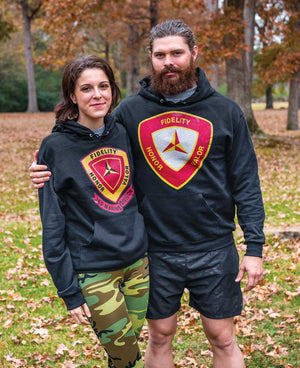
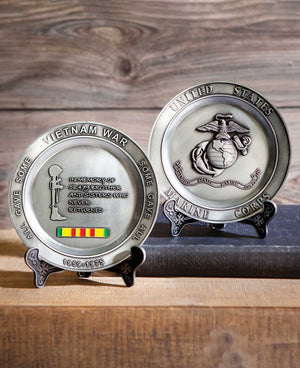
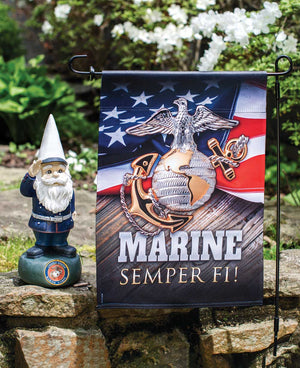
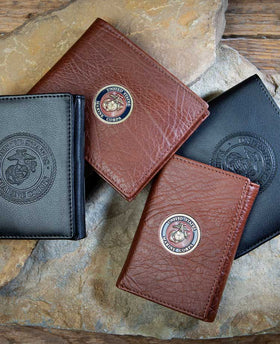
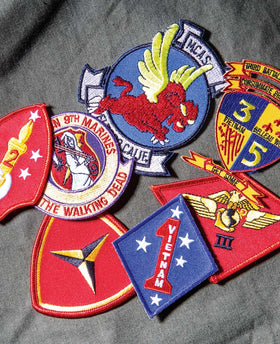
Leave a comment